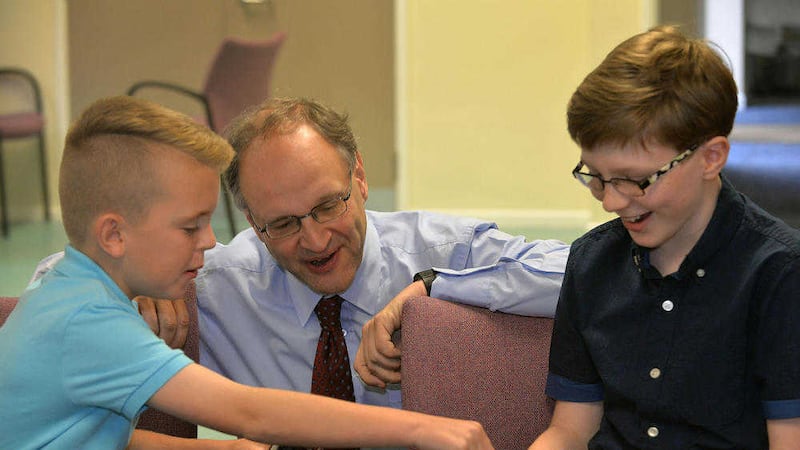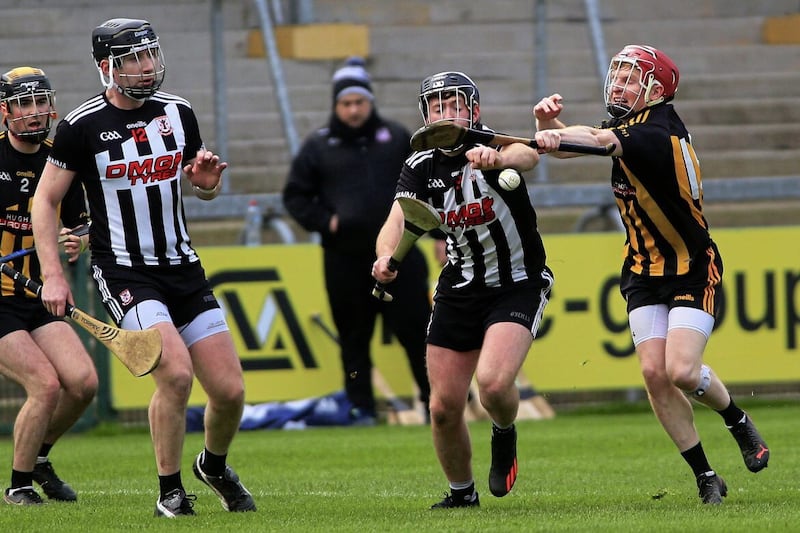AMBITIOUS plans for a residential centre to support hundreds of children with autism throughout Ireland look to have been abandoned.
By now, almost 2,000 young people should have been put up at the Middletown Centre for Autism.
Hailed as a major example of all-island co-operation, it still does not offer its full range of services.
First, money issues - with the north blaming the Republic - and later a shift in focus have seen accommodation plans shelved.
The idea was that up to 320 children and their families each year would stay at Middletown while assessments and therapies were carried out.
Both governments have been reluctant to admit defeat - the north's Department of Education only saying it is "not a key focus at present".
The centre supports the promotion of excellence in the development and coordination of education services to young people with Autistic Spectrum Disorders (ASD).
Although located in Co Armagh, it is a cross-border facility jointly funded by the north's Department of Education and the Department of Education and Skills (DES) in the Republic.
The north spent almost £6 million between 2002 and 2012 on the centre.
Plans were announced in 2002; it launched in 2004 following the purchase of the site and opened in 2007.
An "exciting building and refurbishment programme", which would have seen accommodation for children, was due to be completed by 2010.
The centre's learning support service planned to provide five-week assessments to the 140 most challenging cases from across Ireland and the educational assessment service was also intending to offer a further 180 two-day assessment places.
These services have never been realised.
A Department of Education spokeswoman said residential provision would have allowed staff to work with children "in meeting their educational needs" but the financial position in the Republic in 2009 meant funding was paused.
"Consequently the departments, the Middletown board and senior management team worked together to focus on the development of service provision, including the now well established trans-disciplinary learning support and assessment service, delivered on an outreach basis," she said.
"The trans-disciplinary team work with identified children to understand their needs in their school and home settings and also provide training and techniques for teachers, parents and siblings as well as awareness and understanding for the children's peers."
She added that the centre continued to deliver services in three key areas - learning support and assessment; training and advisory; and research and information.
"DE are content with the services that have been developed. A joint inspection report, published on August 30, provides further assurance on these services given the excellent evaluation confirming the significant impact the services have on the education and life experiences of referred pupils, their teachers and parents.
"Any residential provision, whilst not ruled out in the future, is not a key focus at present."
DES said it paused additional funding in 2009 "due to the difficult budgetary situation".
"Late in 2009, the pause in development funding was lifted by DES and in 2010/11 a limited expansion of services and small capital works were undertaken," a spokeswoman said.
She added that the two governments agreed at the North-South Ministerial Council to "review autism services in the context of preparing an updated, phased multi-annual plan for the future development of the centre".








